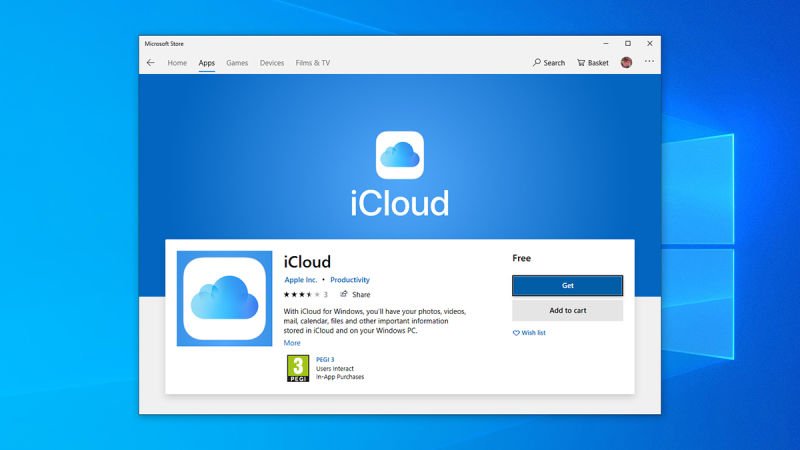

Politicians at open-source champion Munich will next week vote on whether to abandon Linux and return to Windows by 2021.
The city authority, which made headlines for ditching Windows, will discuss proposals to replace the Linux-based OS used across the council with a Windows 10-based client.
If the city leaders back the proposition it would be a notable U-turn by the council, which spent years migrating about 15,000 staff from Windows to LiMux, a custom version of the Ubuntu desktop OS, and only completed the move in 2013.
The new plan, put forward by officials in the CSU and SPD parties, states a Windows 10 client has to be ready for use across the council by 2021 at the latest.
SEE: How Munich rejected Steve Ballmer and kicked Microsoft out of the city
“The proposal aims to ensure that no later than by the end of 2020, a new Windows Basic Client should be the standard city client,” a Munich city council spokesman said.
However, it seems as if LiMux and other open-source software could still be used until the Windows client is in place.
“In the transitional period, departments and business units can use this newly developed Windows-based client with standard products or can continue using a mixed client architecture of Windows and Linux depending on their individual circumstances,” the proposal states.
The use of the open-source Thunderbird email client and LibreOffice suite across the council would also be phased out, in favour of using “market standard products” that offer the “highest possible compatibility” with external and internal software.
The full council will vote on whether to back the plan next Wednesday. If all SPD and CSU councillors back the proposal put forward by their party officials, then this new proposal will pass, because the two parties hold the majority.
Dr Florian Roth, leader of the Munich Green Party, said he expected the council to back the proposal, given the greater number of SPD and CSU members.
“The direction is back to Windows,” he said.
“Years ago, the CSU were against the LiMux project and now they are in charge with the coalition. Now they have succeeded, I think, in going back to Microsoft.”
In 2014, mayor of Munich Dieter Reiter said abandoning open-source software and moving back to Microsoft products would cost more than €17m, about €3.15m Euros in licensing costs and €14m in work to support LiMux and open-source software that would have to be written off—although these costs were for Windows 7 and will likely have increased further.
Roth said the move will cost “many millions of euros” and lost time.
Matthias Kirschner, president of the Free Software Foundation Europe (FSFE), questioned the logic of mayor Reiter and the wider SPD party pushing for a return to Windows.
“The current proposal is a bad joke. They do not know how what exactly would be involved if they drop LiMux,” he said.
“They do not know how long it would take and how much it would cost. But nevertheless the OB [Oberbürgermeister] Reiter wants to move to Microsoft, no matter what.”
The SPD and CSU proposal is based on recommendations in a report released by Accenture and German consultancy arf. However, while the consultants’ report only recommended investigating “whether it makes economic sense to continue using Linux as a client operating system”, this new proposal goes further, suggesting a wholesale move away from Linux.
“Reiter is even ignoring their recommendations, and pushes even harder to drop LiMux,” said Kirschner, adding the proposals “did not make sense” and urging councillors to withhold their vote until they had a better idea of the consequences of swapping back to Windows.
At the time Munich began the move to LiMux in 2004 it was one of the largest organizations to reject Windows, and Microsoft took the city’s leaving so seriously that then CEO Steve Ballmer flew to Munich to meet the mayor. More recently, Microsoft last year moved its German company headquarters to Munich.
Why Windows?
Councillor Anne Hübner, IT spokeswoman for the SPD parliamentary group, explained why her party had proposed moving back to Windows, alongside a wider revamp of IT at Munich City Council.
“At the moment in many cases it just takes far too long and costs far too much for the city to implement software that’s available as standard on the market. This must change, so that the city remains competitive in an increasingly digital service society,” she said.
In the early days after the move to LiMux was completed, the council said the bulk of users had no significant issues with the OS, however some of city’s departments were critical of LiMux when questioned last year. The city’s human resources department (POR) said that since 2006 when the POR started using LiMux and OpenOffice, later switching to LibreOffice, that “the efficiency and productivity of the POR-supported workplaces has decreased noticeably” – referencing crashes, display and printing errors.
The FSFE’s Kirschner pointed out that the consultants’ study highlighted mainly organizational issues as being at the root of problems with the council’s IT, rather than issues with open-source software.
Paradoxically, given the appetite for returning to Windows, the proposal also states that the ultimate goal should be for software used by the city to run “independently of the operating system of the end user’s machine”, suggesting the use of web applications, virtualization and remote desktop services.
Currently the council’s policy is to keep the use of the Microsoft OS to a minimum, only running it where line of business software is incompatible with LiMux.
The consultants report said the move to roll out Windows would be part of a larger €18.9m ‘architecture and client’ project. The four year project would see Munich city council take on two new “Windows experts”, who would help develop a “powerful” new Windows client for use by staff, it said.
At the time the report was released, the FSFE questioned why Accenture was commissioned to co-author a report assessing the use of Microsoft software, when the consultancy runs a joint venture with Microsoft called Avanade, which helps businesses implement Microsoft technologies. For its part, Accenture said it has an “independent view of the technology landscape”.
[Source:-Tech Republic]




